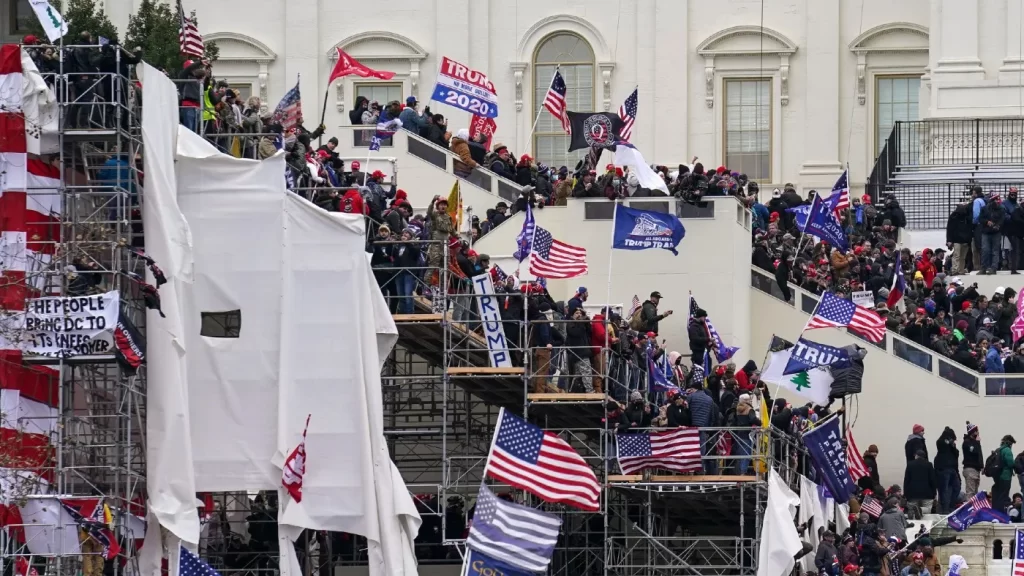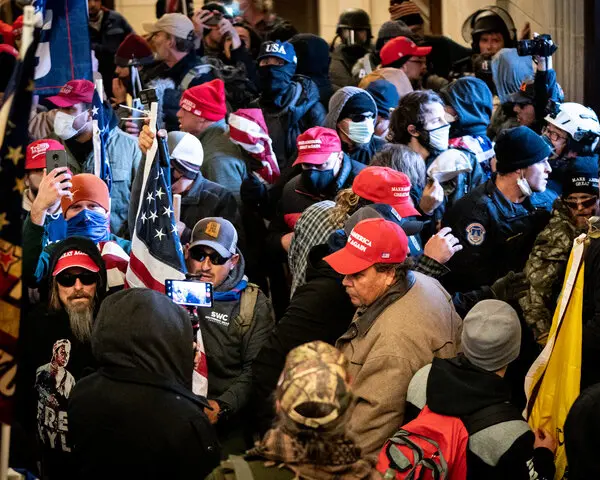Washington D.C. – In a significant legal development, the Supreme Court handed down a decisive ruling on Friday, siding with former police officer Joseph Fischer in his bid to dismiss an obstruction charge related to the Jan. 6, 2021, Capitol riot. The ruling, split 6-3 along non-ideological lines, raises critical questions about the application of obstruction laws in cases stemming from the Capitol breach, including those involving former President Donald Trump.

The case centered on whether the charge under 18 U.S. Code 1512, enacted as part of the Sarbanes-Oxley Act in 2002, could be applied to Fischer’s actions during the riot. Chief Justice John Roberts, writing for the majority, emphasized that the law was intended to address specific scenarios involving tampering with physical evidence, not broad interpretations that encompass various forms of conduct.
The court’s decision requires lower courts to reconsider whether the Justice Department can continue to prosecute Fischer under this narrower understanding of the law. Roberts asserted that the government’s expansive interpretation “defies the most plausible understanding” of the statute’s intent, which carries severe penalties including up to 20 years in prison.

Joining Roberts were four conservative justices and one liberal, Justice Ketanji Brown Jackson, underscoring the non-partisan nature of the ruling. Dissenting, Justice Amy Coney Barrett, joined by two others, argued that Fischer’s participation in obstructing Congress’ certification of President Joe Biden’s election victory was unequivocally covered under the statute.
The impact of the ruling on Trump’s own case remains uncertain, with prosecutors indicating that even if Fischer’s charge is dismissed, Trump’s conduct would fall under a distinct legal interpretation of obstruction.
Joseph Fischer faces multiple criminal charges stemming from the Jan. 6 events, including assaulting a police officer and entering a restricted building. Despite the potential dismissal of the obstruction charge, other charges against him will proceed.
The Supreme Court, currently leaning conservative by a 6-3 majority, has previously shown skepticism toward expansive prosecutorial interpretations of criminal statutes. The decision in Fischer’s case underscores ongoing legal challenges surrounding the Jan. 6 riot and its aftermath.
In a separate legal battle, Trump faces charges related to obstructing an official proceeding, among others, with the Supreme Court also poised to decide on issues of presidential immunity in the context of these charges.
During the Capitol breach, prosecutors allege that Fischer actively participated in breaching the Capitol from the east side, urging others to advance and engaging with law enforcement. Video evidence presented during related trials has depicted his actions and interactions with Capitol police.
Fischer, formerly a police officer in North Cornwall Township, Pennsylvania, remains a focal point in a broader legal landscape where the implications of the Supreme Court’s rulings extend beyond individual cases to the interpretation and application of federal law.



